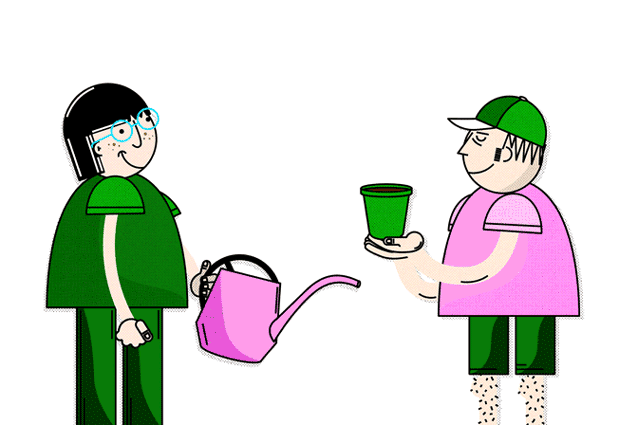A Gift, and a Loss
- Share via
The phone rang at 20 minutes past 1 on a Monday morning in April, nearly 2 1/2 years after Ron Hoopes and his wife, Jean Taeuffer, had begun their wait. Jean answered and heard the voice of a pre-op nurse coordinator from UCLA Medical Center.
“We have a liver for your husband.”
“OK.”
“We need you here right away.”
“OK.”
Soon Jean had her ailing husband out of bed. Human livers can’t be preserved for long and, as Jean understood it, “the fresher the liver, the better.” Thank God this wasn’t rush hour. They raced from La Crescenta through downtown and out to the Westside. En route they used a cell phone to ask: Which entrance? Sixty-six minutes after the call awakened them, they arrived. Three hours later, Ron Hoopes, his life threatened by the ravages of hepatitis C, went into surgery, and by 2 p.m. the operation was complete, his life saved--or at least extended.
Jean smiles recalling the joy of that day. If anyone anywhere has known somebody whose life has been saved by an organ transplant--if people could just begin to comprehend the goodness and grace of such a gift--they would not hesitate to sign their organ donor cards, she says.
And if only the supply of donated organs could approach the demand, she says, then Ron wouldn’t have had to wait so long and grown so sick to become eligible for a transplant.
And then maybe her husband would still be alive today.
*
Ron Hoopes was 43 when he died on Oct. 9, one of the more recent victims of the hepatitis C epidemic. The quiet epidemic, so called, is growing louder. More than 4 million people in the United States are estimated to have contracted the virus that once widely tainted the blood supply. As many as 800,000 people may require liver transplants in the coming decades.
Full-page ads urge people to get tested; early detection can save lives. (One of my colleagues is among the lucky 40% or so who have benefited from interferon and other treatments that sometimes neutralize the virus.) Crusades for more research and treatment funding are growing. And meanwhile, while it costs nothing to fill out the donor card issued by the Department of Motor Vehicles, those contributions are priceless.
When I first wrote about hepatitis C a few weeks ago, I was hoping to have a quick, upbeat follow-up that would explain how my cousin Curly in Alabama, now rejecting the liver he had received two years ago, had received his second and everything was fine. One day, Curly got the great news--a liver had become available. But within an hour, after doctors examined the organ, it was obvious this liver was unsuitable. So Curly’s still waiting.
Meanwhile, I received letters from Jean Taeuffer and another reader who know too well the risk of hepatitis C and the importance of organ donation.
Tonette Ramos wrote about her husband, Joe, who had apparently contracted hepatitis C from a blood transfusion in 1985. Joe had a liver transplant at UCLA more than two years ago.
“He’s doing very well,” she wrote. “Thank God and the donor for the gift of life!”
Jean Taeuffer, as it turned out, wrote to me on Oct. 2, not long after her husband’s condition suddenly worsened.
“Unfortunately,” she wrote, “articles about this disease are becoming more prevalent, and surely will continue to do so as more and more people become aware that they are infected.” Awareness of hepatitis C, she suggested, “is much more significant in the grander scheme of things than details of the sexual peccadilloes of elected officials.”
Jean described her husband’s long wait on the transplant list and the medical travails since the operation. His recovery, she wrote, “has been pretty rocky” because his overall physical condition had deteriorated so greatly during the wait.
“But,” she added, “we know he is lucky to be alive.”
Jean left her office number at Nestle in Glendale. I called a couple weeks later and had a bad feeling when I heard her voice on a recording, explaining she was off due to a family emergency.
*
Instead of Jean and Ron, I would meet Jean and her mother-in-law, Barbara Hoopes. Barbara had come from Phoenix to live with them 18 months ago. For Ron, she was the primary caregiver. For Jean, “my rock.”
Both women said that before learning Ron was ill, they had never bothered with organ donation forms. “Now,” Barbara said, “it’s you take whatever you can, because I’m not going to need it.”
Home is on a quiet street in the foothills of the San Gabriels, among neighbors who made Jean and Ron feel comfortable when they moved in just over a year ago. The living room is neat and elegant, with shelves displaying family pictures. Here are Ron and Jean smiling during their courtship more than 10 years ago. Here are Ron’s three children from a previous marriage, smiling at Dad’s second wedding.
The first time they met, Jean says, her job had taken her to a beverage processing plant in Phoenix. Ron was under a piece of machinery, grease up to his elbows, a bearded, burly man who Jean would later learn was both “physically strong and ethically strong.” Two years later, he moved to Los Angeles to be closer to Jean. They were married in Glendale.
Ron was the kind of guy who hated to visit the doctor and tried to tough it through his ailments. When he had to miss work, he finally visited a doctor who quickly diagnosed liver trouble, and then hepatitis C. How he was infected, nobody knows. Ron’s weight declined from 230 pounds to 165 in the years that followed. He was caught with my cousin Curly and thousands of other patients nationwide in the horrible Catch-22 created by the shortage of organs: To become eligible for the procedure that may make you well, you must first become very, very ill.
Ron had been holding up pretty well, his widow and mother say, until last October. From the start they had been told to expect a wait of 12 to 18 months, but it had been two years, and suddenly his health rapidly declined. Hope was fading when the call came in April.
For months, Ron remained in the hospital, and after coming home his condition was precarious. “If he had died in August,” Jean says, “I wouldn’t have been so shocked.”
But in September, Ron Hoopes suddenly seemed to be feeling like his old self. He told his mother it was the best he had felt in years.
“I thought, wow, he’s going to make it,” says Jean.
Her mother-in-law smiles, remembering September. Ron had “three good weeks.” One of his daughters happened to visit. Ron didn’t like his kids to see him in the hospital.
“Yep,” his mother said, “September was a really good month.”
*
Scott Harris’ column appears Tuesdays, Thursdays and Sundays. Readers may write to him at The Times’ Valley Edition, 20000 Prairie St., Chatsworth, CA 91311, or via e-mail at scott.harris@latimes.com. Please include a phone number.
More to Read
Sign up for Essential California
The most important California stories and recommendations in your inbox every morning.
You may occasionally receive promotional content from the Los Angeles Times.











